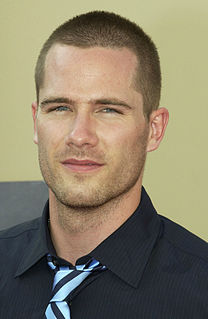A Quote by Haroon Moghul
I think that every individual is a microcosm of the culture that they're born into. They reflect the anxieties, insecurities, and strengths of that culture. I'm also American and I reflect on what it's like to be an American in the 21st century.
Related Quotes
The foreign audiences are somewhat surprised and happy to find an American film that asks questions about American culture. There's a certain kind of cultural imperialism that we practice. Our films penetrate every market in the world. I have seen and have had people reflect to me, maybe not in so many words or specifically, but I get the subtext of it - they're somewhat charmed and surprised and happy to see an American film reflect on our culture. Because they see other cultures reflect on our culture but they don't see US culture reflecting on itself in quite the same way.
Miami, which has already aired, has this wonderful blend of Caribbean culture and Latin American culture and Southern American culture (talking about fried chicken). All those combine to make for a very very interesting array of ingredients, restaurants, and the chefs that come there. It also has great seafood, not to mention the glorious citrus that's there. And all those things inform what you do - and they should.
I feel it's my social responsibility to shine a light on areas that don't get seen. My personal feeling is that it's an artist's responsibility to be engaged with the culture. And when the culture is going through turmoil, I think an artist can't ignore that. I don't feel that every artist has to be politically engaged, but I can't imagine that you can be an active participant of this culture and not in some way reflect that in the work you are creating.
I have some advantages of viewing from the two lenses, the two perspectives. I think that a lot of visual artists who come back here from the United States and are Cambodian also write from their American references - looking inside the old culture, and looking at themselves as an American looking into the country where they were born.

































